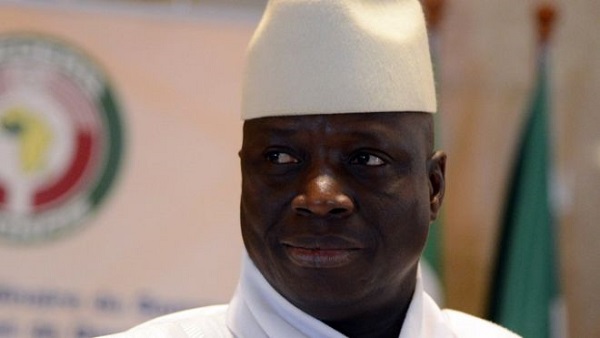The Gambia has banned the internet and international phone calls as presidential elections are held in the West African state.
Officials have also banned demonstrations to prevent unrest after the elections.
Estate agent Adama Barrow is challenging President Yahya Jammeh, who says divine intervention will give him a fifth term.
The Gambia has not had a smooth transfer of power since independence.
Observers say Mr Barrow, who according to British news reports was once a security guard in the UK high street store Argos, has generated fresh enthusiasm among opposition supporters.
Human rights groups accuse Mr Jammeh, who has in the past claimed he can cure Aids and infertility, of repression and abuses.
Several previously better-known opposition leaders are in jail after taking part in a rare protest in April.
Observers from the European Union (EU) and the West African regional bloc Ecowas are not attending the vote.
Gambian officials expressed opposition to the presence of Western observers, but the EU says it is staying away out of concern about the fairness of the voting process.
The African Union however has despatched a handful of observers to supervise the vote.
The Gambia, a tiny country with a population of less than two million, is surrounded on three sides by Senegal and has a short Atlantic coastline, which is popular with European tourists.
The results of the election are not expected to be announced immediately.
Mr Jammeh took power in a 1994 coup.
Ahead of the vote, rights groups expressed concern over a possible flare-up of violence.
However, campaigning passed off almost smoothly without a major incident.
At his rallies, Mr Jammeh touted his “development record”, claiming he took The Gambia “from stone-age to a modern country” and he should win.
“Ninety-eight per cent of students in universities are on scholarships,” he told the BBC.
“You can’t walk 25km [15 miles] without reaching a major health centre,” he said.
‘Rig-proof elections’
But Mr Barrow told the BBC that Gambians had been suffering for 22 years and now was the time for change.
“Voters know that [I am] genuine and ready for change and that’s why they should trust me,” Mr Barrow said.
On Tuesday Mr Jammeh warned his rivals against contesting the outcome of the vote.
“Our election system is fraud-proof, rig-proof, you cannot rig our elections,” he said.
“There is no reason that anybody should demonstrate. [Demonstrations] are the loopholes that are used to destabilize African governments.”
Mamma Kandeh of the Gambia Democratic Congress is also in the race.
Source: BBC Africa


